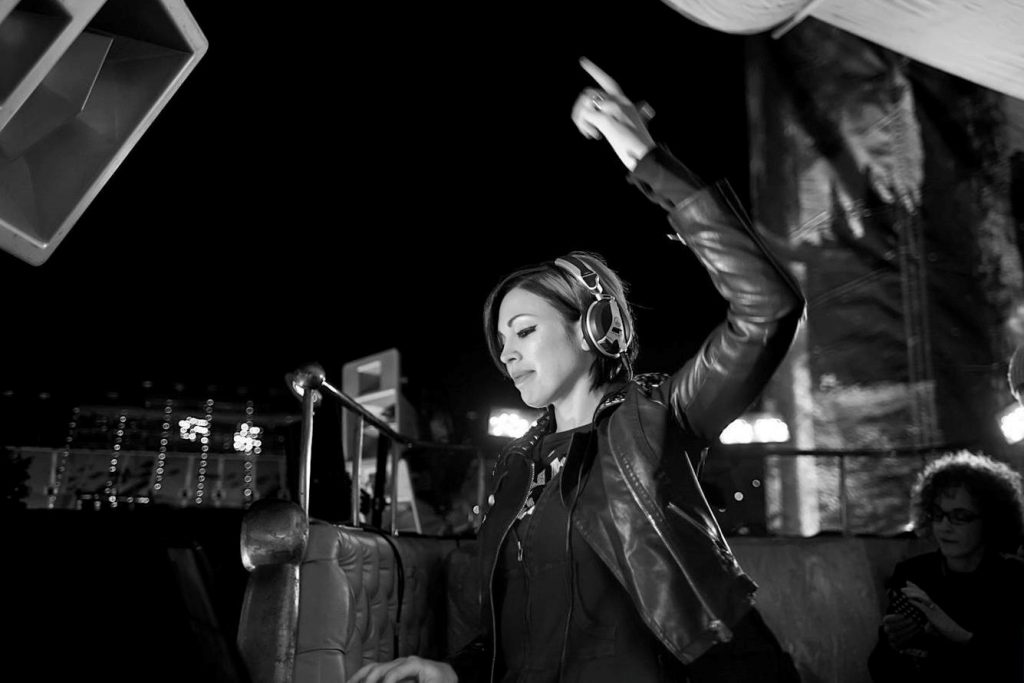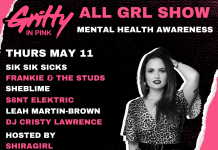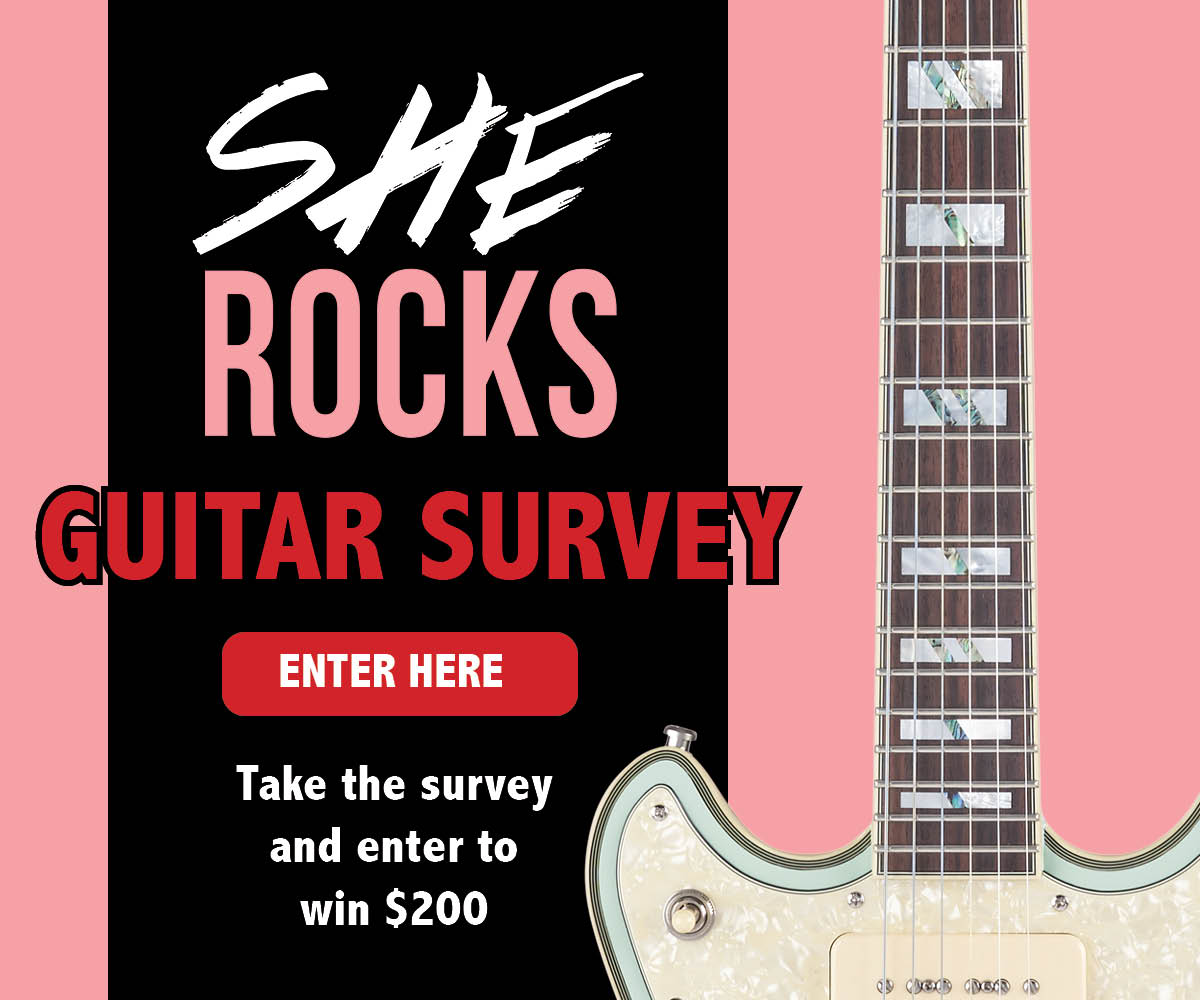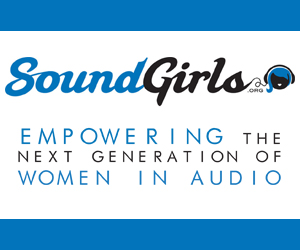Front and Center: Dani Deahl, Producer, DJ and Journalist
By Leslie Buttonow

Here at the WiMN, we like to celebrate and encourage fabulous and fierce women in music who not only are on top of their game, but who also advocate for other women in music as well. A shining example of this is Chicago-based touring DJ, electronic music producer, and journalist, Dani Deahl. In addition to performing on stages around the globe, creating her own music in multiple electronic music genres, and writing for media outlets such as The Verge, Deahl has also been a huge supporter of other women in music and for gender equality in music.
In a previous interview with MTV.com, she said, “[The situation] is weird because we [feel like] can’t even talk about the things that are happening because we’re viewed as whining or being victims,” she said. “[But] to talk about things that are happening doesn’t mean you’re a victim if you’re actively trying to change what’s going on around you.”
And rather than making her battle cry be one that admonishes the industry or fans for gender inequality in music, she choose to embrace and shine a light on the positive contributions of women in music, while also intelligently sharing the statistics—something that earned her an appearance in the acclaimed TEDx talk series in 2015 and many other speaking engagements. In March 2017, Deahl also launched a Twitter series in honor of women’s history month, where each day she focused on a female figure in music and the contributions they made.
These days, Deahl is focusing on creating more music for her fans, and has some soon-to-be-announced exciting projects in the works. For a sampling of Deahl’s music, visit her SoundCloud page, which has a selection of original tracks and remixes.
For more information, visit danideahl.com. You can watch Deahl’s TEDx talk here.
WiMN: Tell us a little about the role music played while you were growing up, and how you gravitated toward the style of music you create and play.
DD: To be honest, we weren’t a very musical family! I had a couple years of piano lessons when I was young, but it wasn’t until high school when I discovered dance music that I became obsessed. It was the whole culture around raves — I loved everything about how welcoming and colorful and exciting it all was. And by association I loved the music. House music in particular is what I first became attached to. I looked up to (and still look up to) local legends like Derrick Carter, Diz, Green Velvet, Felix da Housecat… there was just so much happening. Although over time I became more known for other genres of electronic music, there is always the most room in my heart for house.
WiMN: What’s your favorite thing about DJing live and about producing music?
DD: Getting in the zone. With DJing, that means finding a groove where the dance floor feels synced up with what I’m playing. It feels like I can anticipate every reaction they’ll have without even thinking and we all ride the same wave together. With producing, that means stumbling into an idea that feels really good and chasing it quickly to sketch it out in whole while not even thinking about the outside world. Some of my best produced tracks were made in the least amount of time because they weren’t over thought.
WiMN: Any wish list place to perform?
DD: EDC [Electric Daisy Carnival] Las Vegas!

WiMN: How did you like your experience giving a TEDx talk about women’s roles in dance music? I imagine it can be both energizing and terrifying all in one! What is some of the positive feedback you received?
DD: You nailed it — doing the talk was one of the scariest and most rewarding things I’ve ever done in my life. I didn’t even know I was confirmed to do the talk until a few days before it happened, which added to the intensity of the whole experience. The response continues to be overwhelming for it. I’ve heard from so many women who say that the talk inspired them to get into music and it’s been used as a topic of discussion for panels and in podcasts. It is the best feeling to know that I’ve been able to contribute something that others find empowers their own journey. For me, it’s important to use my voice for the people who can’t or haven’t found theirs yet, and it’s a topic we still need to be vocal about.
WiMN: You are an admirable champion for women in music in a way that shines a positive light on their contributions, backed by statistics about gender inequality. Are there any areas in which you’ve seen some progress for women or more opportunities than when you were starting out?
DD: Absolutely. I see more and more women entering dance music in DJing, engineering, management, event production… every avenue. And that’s in part because the conversation about representation has been brought to the forefront in a way that was never demanded of us before. The problems are plainly being laid out and people are having to contend with their participation in it or their blindness to it. There is still a long way to go. Not everyone is willing to have their behavior checked, or on a basic level, admit there is a problem. Very recently I saw a festival lineup that featured over 40 acts, and there was not one woman on that list. We deserve better than that, and those in the positions of power should be extending themselves to address representation. But in general we are more aware than ever, and that gives me great hope.
WiMN: Do you have an encouraging word for young women starting out in some aspect of our music industry?
DD: Always ask. If you have a question, ask. If you want to learn something, ask. If you want access to something, ask. People are generally so willing to share knowledge if you request it. If you don’t ask, the answer is no—100 percent of the time. By even asking, your odds are better than zero, so what do you have to lose!
WiMN: What’s a current performance goal you have, and how do you motivate yourself to reach your goals?
DD: I’m pushing myself to create more music. I’m constantly on the road, but not necessarily for gigs, so it can often be hard to have routines. I do a lot of mentorship through non-profit programs like Camp Spin-Off, speaking engagements, and advocacy with the Recording Academy through my role as Governor. To that end, I’ve recently found a couple of people I enjoy collaborating with on music, and being accountable to someone else has pushed me to find new ways to balance my life and create space for music production again. The platform Splice makes it incredibly easy to share Ableton projects, so there’s no excuse even if I’m traveling every week! I always say that if something is important enough to you, you find the time. So I’m finding the time.
WiMN: Any new music or shows coming up that you’d like to share?
DD: I have so much I’m working on that I can’t speak about yet! All I can say is watch my spaces and The Verge’s spaces for incredibly big announcements that are coming in the next few weeks.








